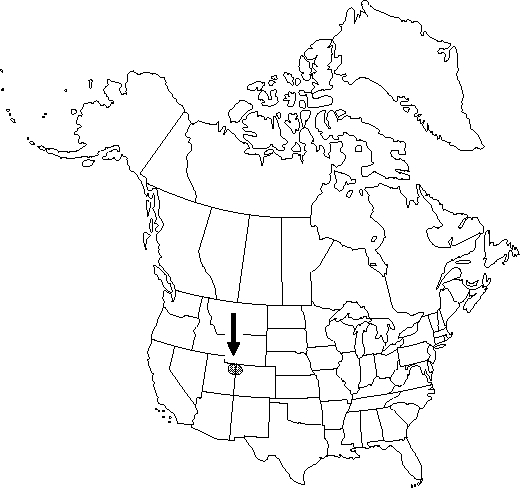Difference between revisions of "Aquilegia barnebyi"
Leafl. W. Bot. 5: 177-178. 1949.
Endemic
Treatment appears in FNA Volume 3.
FNA>Volume Importer |
FNA>Volume Importer |
||
| Line 27: | Line 27: | ||
|elevation=1500-2600 m | |elevation=1500-2600 m | ||
|distribution=Colo.;Utah. | |distribution=Colo.;Utah. | ||
| − | |discussion=<p>Aquilegia barnebyi is endemic to the Green River drainage. It is very similar to A. micrantha, and intermediate plants are found in Colorado.</p> | + | |discussion=<p><i>Aquilegia barnebyi</i> is endemic to the Green River drainage. It is very similar to <i>A. micrantha</i>, and intermediate plants are found in Colorado.</p> |
|tables= | |tables= | ||
|references= | |references= | ||
| Line 51: | Line 51: | ||
|publication year=1949 | |publication year=1949 | ||
|special status=Endemic | |special status=Endemic | ||
| − | |source xml=https://jpend@bitbucket.org/aafc-mbb/fna-data-curation.git/src/ | + | |source xml=https://jpend@bitbucket.org/aafc-mbb/fna-data-curation.git/src/8f726806613d60c220dc4493de13607dd3150896/coarse_grained_fna_xml/V3/V3_74.xml |
|genus=Aquilegia | |genus=Aquilegia | ||
|species=Aquilegia barnebyi | |species=Aquilegia barnebyi | ||
Revision as of 17:19, 18 September 2019
Stems 30-80 cm. Basal leaves 2-3×-ternately compound, 5-30 cm, much shorter than stems; leaflets to 8-20 mm, glaucous on both sides, not viscid; primary petiolules 17-34 mm (leaflets not crowded), glabrous. Flowers erect or nodding; sepals perpendicular to floral axis, pink, ovate-lanceolate to elliptic, 10-18 × 5-7 mm, apex acute or acuminate; petals: spurs pink, straight, ± parallel, 14-27 mm, stout proximally, slender distally, evenly tapered from base, blades yellow or cream, oblong, 6-10 × 4-6 mm; stamens 11-16 mm. Follicles 18-25 mm; beak 8-12 mm.
Phenology: Flowering summer (Jun–Jul).
Habitat: Cliff walls and talus slopes, usually on shale
Elevation: 1500-2600 m
Discussion
Aquilegia barnebyi is endemic to the Green River drainage. It is very similar to A. micrantha, and intermediate plants are found in Colorado.
Selected References
None.
Lower Taxa
None.
